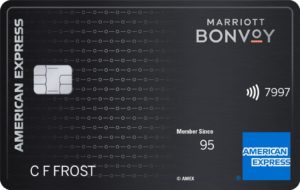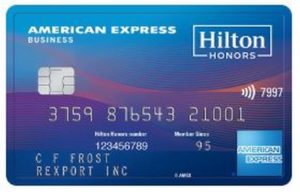
American Express Welcome Offer
Amex stays pretty busy changing their various card welcome offers. There’s nothing wrong with that, but it puts more responsibility on consumers to hunt for the best welcome offer. On top of this, Amex offers a considerable number of card products. Naturally, it’s easy to get overwhelmed. Indeed, Amex makes me feel that way sometimes. Often, one may suffer from paralysis by analysis when identifying the “right” American Express welcome offer. Today, I’m explaining why you may want to apply even when you’re not sure. But first, let’s recap why optimizing Amex welcome offers is so important.
Importance of Picking the Best Welcome Offer
It’s particularly key to obtain the best possible Amex card welcome offers. Why? Because Amex generally follows their once per lifetime rule. This limitation is usually reflected in welcome offer terms as follows:
Welcome bonus offer not available to applicants who have or have had this product.
If you’ve ever held an Amex card as the primary cardholder, even if you didn’t obtain a bonus, Amex has the right to withhold a welcome offer in the future. Fortunately, Amex generally does a good job informing applicants. Ineligible individuals obtain a pop-up box during the application process notifying them they won’t obtain a bonus.
Occasionally, Amex welcome offers don’t have this lifetime language, so there are exceptions. But such offers are unpredictable, and people shouldn’t rely on them showing up. Beyond those offers, consumers should focus on picking the best welcome offers based on the once per lifetime rule.

The Best of Both Worlds
Due to the once per lifetime rule, individuals end up in some perplexing Amex application predicaments. The current offer looks great, but what if it gets better next month after this current offer expires? The offer on this card has been the same for years; is it safe to say it won’t go up any time soon? Since I have five Amex credit cards currently, could I even be approved for the current offer?
Individuals are in an optimal position by using what I’ll call the Amex welcome offer hedge play. This strategy is specifically for Amex cardholders who’ve maxed out their Amex credit card (5) or Pay Over Time card (10) limits. With this play, a cardholder’s maxed-out situation is an asset rather than a limitation. Here’s how.
American Express Welcome Offer Hedge Play Example
The current credit card welcome offer expiring at the end of this month (I’ll call it Offer A) is good enough for Joe Cardholder, but he’s concerned that the next unknown welcome offer (I’ll call that Offer B) may be better. He can apply for Offer A and will most likely be immediately denied. A snail mail letter will show up several days later stating that he was denied since he already holds “the maximum number and type of American Express Card accounts that we allow.” (I’ve received this letter several times, as I had expected.)
Joe Consumer has 60 days from the Offer A application date to call the number on the letter for reconsideration. Meanwhile, Amex releases Offer B, which Joe considers to be an inferior offer. Offer A is the one to pick. While still in the 60-day timeframe, Joe Consumer closes one of his existing Amex credit cards. Now that he is under the five Amex credit card limit, he subsequently calls Amex and requests that his application be reconsidered. He’s approved for the card under the Offer A terms, which Amex reps can confirm.
But using a similar example, let’s say Offer B is better. If Joe’s confident that Offer B is the one for him, he can close an Amex card, apply for offer B, and receive approval. Alternatively, he can apply for Offer B, then close the fifth card (similar to what I described before). Joe’s essentially restarting the hedge play if he follows this sequence, waiting for a potentially better Offer C, if he prefers. Rinse and repeat.
Individuals can follow the same logic for Pay Over Time cards – just replace the five credit cards with ten Pay Over Time cards in the above example.

Considerations
In all cases, timing is key. First off, applying for the current welcome offer just before it expires provides individuals the most flexibility. Also, don’t close an Amex card before the year two annual fee hits. Amex has been known to shut down individuals who close cards within the first year of holding them.
I want to reiterate that an individual who is ultimately approved via reconsideration is eligible for the welcome offer they applied for at the original time of application, provided they didn’t receive the once per lifetime pop-up I described earlier.
Also, if the individual who applied used a referral link and is subsequently approved via reconsideration, the person who referred will automatically receive the referral bonus. My wife and I have first hand experience here, and I’ve received data points from others that they received referral bonuses in similar situations.
I have another recommendation for those playing the rewards game in two player mode with a spouse or domestic partner. If an individual decides to apply again under different welcome offer terms (Offers B or C in the above example), they should do so with a fresh, new referral link. That said, I don’t have data points that using an old referral link won’t end up with a referral bonus. I just feel sending a new referral for the additional application is the safer move.

American Express Welcome Offer Hedge Play Examples
I have a few examples of the hedge play in action, one which I recently shared. My wife and I each applied for the previous Marriott Bonvoy Brilliant Amex welcome offer – 100k points and an 85k free night award. Since we each held five credit cards at the times of our applications, we were both immediately denied (as we expected). Amex then released the next Brilliant welcome offer – only 75k points. The first offer was clearly the winner.
We each closed credit cards and called the reconsideration line within the 60-day timeframe. Both of us received approval and have obtained the 100k points and free night award in our respective Bonvoy accounts. (We didn’t apply via referral since that welcome offer was inferior, so neither of us received a referral bonus.)

More recently, I applied for the Hilton Amex Business card under the 130k points and $130 Hilton statement credit welcome offer via my wife’s referral link. The next welcome offer was only for 130k points, so I opted for the first offer. I closed another credit card and received approval under the original offer terms via reconsideration. My wife automatically received her 25k Membership Rewards referral bonus a few days later.
Conclusion
I can’t deny that this play may become convoluted. Appropriate timing and recordkeeping is integral to successfully optimize this hedge play. But those two skills are key to maximizing most all aspects in our hobby. Plus, there’s always an outside chance Amex unexpectedly approves you for a sixth credit or 11th Pay Over Time card. I recall this happened to Greg over at Frequent Miler years ago, among other more recent examples. Nonetheless, I feel the Amex welcome offer hedge play is a worthy pursuit for those looking to maximize rewards. Have you done anything similar with Amex? How has it turned out?



Is there a quick way to determine if an Amex card is a credit card or Pay over Time card?
Hi Elizabeth – the Amex Pay Over Time cards are: Green, Gold, Platinum, Centurion, Plum. All the others are standard credit cards.
Thanks for your reply, Mark.
Of course, the person who has received a sign-up bonus on every single Amex card and is currently subject to the lifetime limitation on every single Amex card is out of luck. But, such an individual would be left with 1) retention offers, 2) upgrade offers, and 3) referral offers — which alone can be great. So, don’t think there’s an end of the road.
Reno Joe,
Agreed, and no lifetime language offers can come around, too.